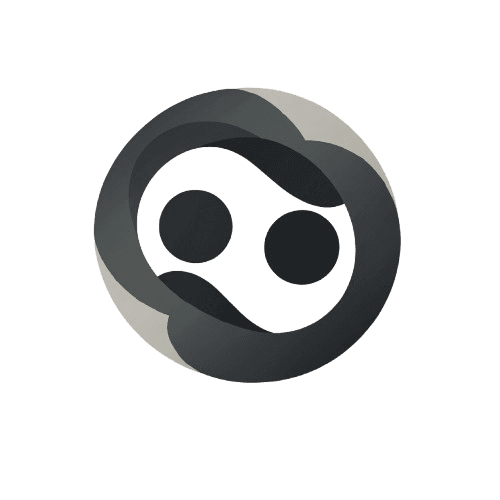5 Industries Thriving with Personalized Quizzes for Lead Generation
Personalized quizzes have rapidly become a powerhouse tool for businesses looking to capture qualified leads and engage their audience in a meaningful way. By offering interactive, personalized experiences, quizzes allow companies to connect with potential customers while gathering valuable data that fuels smarter marketing strategies.
Here’s a look at five industries where personalized quizzes are not just driving lead generation—they’re transforming how businesses attract, engage, and convert their audience.
1. Health & Wellness
The health and wellness industry has seen explosive growth in the use of personalized quizzes. From fitness assessments to personalized meal plans, quizzes offer a direct way for brands to tailor their products and services to individual customer needs.
Take nutrition coaches or fitness trainers, for example. By creating a quiz that asks users about their fitness goals, dietary preferences, or lifestyle habits, they can generate highly personalized workout routines or meal plans. Not only does this boost engagement, but it also gives prospects immediate value, increasing their likelihood of converting into paying customers.
Why it works:
Immediate personalization: Users receive tailored fitness or health recommendations.
Lead qualification: The quiz helps segment users based on their health goals, allowing for more targeted follow-up.
Example: Zing uses personalized quizzes to create custom training plans based on user preferences, helping to convert interested quiz takers into paying clients for their coaching services.
2. E-Commerce & Direct-to-Consumer (D2C)
E-commerce brands, particularly in fashion, beauty, and lifestyle, are thriving with personalized quizzes that guide users to the right products. Whether it’s a skincare routine or the perfect pair of shoes, quizzes offer an engaging and informative shopping experience that feels custom-tailored to each user.
For example, a skincare brand might ask questions about skin type, concerns (such as acne or dryness), and desired results. The quiz then suggests a personalized skincare routine, increasing the likelihood of purchase by removing the guesswork for the consumer.
Why it works:
Product recommendations: Users receive specific product suggestions based on their preferences.
Higher conversion rates: Personalized recommendations lead to increased sales as customers feel the products are tailored to their needs.
Example: Beauty brands like Sephora have used personalized quizzes to recommend skincare or makeup products based on the customer’s skin type and concerns, significantly improving product discovery and increasing sales.
3. Digital Marketing Agencies
For digital marketing agencies, personalized quizzes have become an effective way to engage potential clients and provide them with instant, actionable insights. By offering free marketing assessments or website audits, agencies can capture high-quality leads while showcasing their expertise.
A quiz might ask business owners about their current marketing efforts, website traffic, or SEO practices. At the end of the quiz, users receive a detailed report with tailored advice on how to improve their digital marketing strategies, along with a clear call to action to book a consultation.
Why it works:
Demonstrates expertise: The quiz doubles as a free consultation, giving potential clients a taste of the agency’s value.
Qualified leads: The quiz helps pre-qualify leads by understanding their business needs before direct outreach.
Example: Agencies like ContentlyAI offer personalized content strategy assessments, which generate actionable reports that not only educate prospects but also lead to higher-quality leads who are more likely to convert into paying clients.
4. SaaS & B2B Services
In the competitive world of SaaS and B2B services, personalized quizzes are helping businesses stand out by offering tailored solutions based on a company’s specific needs. These quizzes can range from software selection tools to business strategy assessments.
A SaaS company offering a CRM solution, for instance, might use a quiz to assess the lead's current software setup, sales process, and business goals. Based on the answers, the company can offer a tailored demo or a custom software recommendation, showing prospects exactly how their product can solve the customer’s problem.
Why it works:
Custom solutions: Quizzes provide personalized software recommendations based on the prospect’s business size and needs.
Efficient lead scoring: Responses allow the sales team to prioritize high-quality leads.
Example: Companies like HubSpot use quizzes to recommend specific tools or packages, helping prospects understand which solutions best fit their unique business needs, while accelerating their decision-making process.
5. Education & E-Learning
Personalized quizzes are becoming a staple in the education and e-learning industry, especially for institutions and online learning platforms looking to guide students toward the right courses or programs.
For instance, an online education platform might create a quiz that asks users about their career goals, skill levels, and areas of interest. Based on the answers, users receive tailored course recommendations or learning paths, helping them make informed decisions and boosting enrollment.
Why it works:
Guided learning paths: Quizzes help users identify courses or programs that are best suited to their career goals.
Increased enrollment: Personalized course recommendations lead to higher conversion rates by reducing uncertainty.
Example: Platforms like Coursera or Skillshare use personalized quizzes to recommend relevant courses based on user interests and career objectives, leading to higher engagement and course completion rates.
